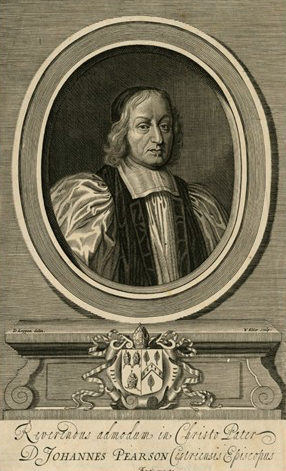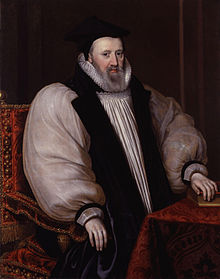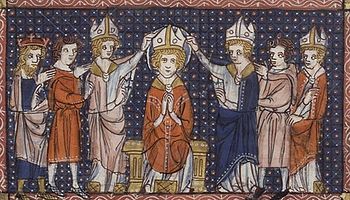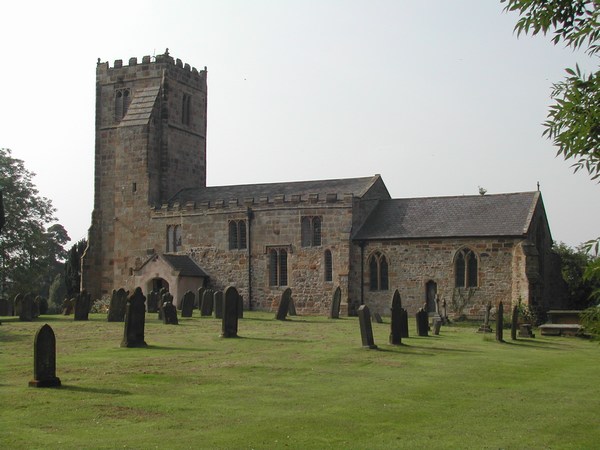By a total fall I mean, such a fall as would be incurr’d by the Christian, should he be supposed to be removed off the foundation, and to lose his union to Christ. The consequence whereof, must necessarily be the loss of all saving grace; so that though he still retained some gifts and common graces, which might render him tolerable in the world, yea serviceable, yet he was wholly without saving grace: which might make his heart good, bent for God and holiness.
Now thus fall he cannot, though he may commit some sins, yea and gross sins; and also neglect some considerable duties, and come under the tyranny of some lust, which he was unacquainted with before, and little exercise such graces as formerly were stirring in him, yet still he can never be so, but he’ll have the root of grace in him, and still the bent of his heart will be heavenwards, though as to any actual motions of his soul that way, he be either diverted from them by some deceit, or hindr’d in them by some violence. Thus the stone has an inclination towards the center, though it move not that way so long as some hand interposes to stop its motion. The fountain has a strong tendency to send out streams of fresh water, though so long as the spring is stopt with stones, or mud, no water at all appears.
A Christian then may fall partially but he cannot fall totally.
By a final fall I understand such a fall as he will never recover out of, nor shake off the prejudice of.
Now a partial fall may be supposed, where there is no total. As there may be a final death, where there is no total. As when a man dies as to one part, be it a leg or an arm, which is so seized on by the palsey, as to lose all sense and motion, which he never recovers again; in this case he dies finally, as to one part, though he die not totally as to his whole body.
Now this we say of one, who is built on the Rock Christ, and is a Christian. As he can neither fall totally, so as to lose his whole new life, root and branch; so neither can he fall finally, so as never to recover that measure of life and grace, which he is supposed to lose. Indeed he may lie some while in his fall, without rising again by repentance, as it was with St. Peter, who after he had denied Christ once, went on to deny him again, and again more grievously, and continued in this sin without repentance for about three hours, (as divines by comparing together several circumstances of the history, do compute) from nine, till about midnight, though he was admonished of his sin, by the cock crowing twice (Luke. 22: 61). That St. Peter did not remember what Christ had told him about his denying him thrice, before the cock crew twice, till Christ looked upon him; and much more in David, who after he had defiled Bathsheba, and murdered Uriah, continued in his sin about a year not repenting, for he repented not till Nathan reproved him, and Nathan reproved him not, till a child was born of his adultery with Bathsheba (2 Sam 12:14). But God will order it so, that by some ordinance, or some providence he shall be excited, and enabled, to recover himself again, either during his lifetime, or however at his death; he shall recover himself so, as to be able and ready to forsake every sin he has lived in, to discharge every duty he has neglected, to overcome every lust he has been kept under by, to exercise every grace he has been deficient in.
But how do’s it appear, that those, who are built on Christ, neither do, nor can fall, either totally or finally?
I shall not go about to evidence either of these distinctly, but shall handle them conjointly.
1st, That life and grace, which Christians receive upon their union to Christ as their foundation, head and root, are resembled to such things as abide, if they do not grow and flourish. It is like a well of water, which usually is not dried up, though the summer be very droughty (John 4:14). A well of water, springing up into everlasting life. It is like a tree planted by the waters, which lives, and grows, and flourishes, when others are quite dead for want of rain (Jer. 17:8). It is like seed, which has taken root in good ground and therefore abides, and thrives, and brings forth fruit (Matt. 13:23; Luk. 8:15).
But you will say all these things have their end, few fountains but in time they quite fail: No trees, how commodiously soever planted, but in time die: No seed, but when it has brought forth as much fruit as it will, dies itself, and its fruit will in time decay.
Yet let it be considered that all these last full as long as it could be expected they should do according to their nature, and if they last not always, it is because their nature is but to continue for a time.
Now it’s the nature of saving grace to continue forever, for it is everlasting life as it is called (Jn. 3:36). He that believes on the Son hath everlasting life (1 Jn. 5:11). God hath given to us eternal life.
2dly. Those who are thus united unto Christ are such as God has chosen to salvation, and therefore they cannot fall away totally & finally; if they could, they would miss of that salvation which they are chosen to, and so God’s election would be frustrated.
Whoever are united to Christ are chosen of God, is evident, because all those are effectually called, (union to Christ being the immediate result of effectual vocation) and none are thus called by God, but such as he has chosen (Rom. 8:30). Whoever are chosen of God are chosen to salvation, is as evident, for this is the end, which God designs to advance to, when he culls out such from the world, as he judges fit for his purpose (2 Thess. 2:13). God has from the beginning chosen you to salvation &c. That whoever fall away from grace must assuredly miss of salvation, is evident to all, who understand and consider.
1st, What those, who are saved, are mainly saved from, and this is their lusts and sins (Matt. 1:21). He shall save his people from their sins, and this they cannot be, if they fall away from grace.
2dly. What they are mainly saved to, or for, and that is glory. Now those, who have lost grace, are incapable of glory, grace differing not at all from glory but in degrees, grace is but glory in its infancy, and glory is but grace in its full growth.
Now that those, who are elected by God unto salvation, cannot miss of it, is evident, whether we consider Scripture or reason. Scripture saith, it’s not possible for the elect to be seduced, i.e. into such errors or sins whereby they may miss salvation (Matt. 24:24). In so much that if it were possible, they shall deceive the very elect. Whoever are blinded, so as to miss salvation, the election obtains it, i.e. those who are elected by virtue of their election (Rom. 11:7). And reason shews, that whoever are chosen by God unto salvation must certainly attain it, unless God want either power, effectually to pursue his purpose till he have brought it about, or will, to do what he is able, neither of which can be supposed, granting but that which none can with any shew of reason deny, that God is omnipotent on the one hand, and all-wise on the other.
If he be almighty, he can effect whatever he has a mind to bring about; and if he be all-wise, he can never alter from what he purposes.
The only reason why men change and give over pursuing what once they intended, when still it is in their power so to pursue it as to attain it, is because they are now of another mind than once they were, and that because they find inconveniencies now, which formerly they never thought of; but this is their foolishness, which is not to be supposed in the all-wise God, who perfectly discerns whatever might be like to induce him to wave his choice before he makes it.
3dly. Those who are thus united unto Christ, are such as are apprehended by Christ for some end, and will not be let go by Christ till that end be attained. As St. Paul was apprehended by Christ, so are all that are in Christ (Phil. 3:12). At our first union unto Christ, Christ takes hold of us by the hand of his Spirit, and we take hold of him by the hand of our faith.
Now that which Christ takes hold of us for, is to bring us unto that, which a Christian by his inclination is carried out to reach after; I follow after, that I may apprehend that, for which also I am apprehended &c. Now there is no attaining this, which is holiness, and righteousness, in their perfection, with the peace, joy and glory, which is the necessary result of these, without holding fast grace, and holding on in good works, in obedience, patience, and self-denial.
Now they being in Christ’s hand, to be brought unto this end, unless Christ want either power to keep them in his hand, or power while he does keep them in his hand, to bring them unto that salvation he designs them for, how can those miss eternal life, of whom Christ saith, I give unto them eternal life (Jn. 10:28)? Who are kept by the power of God through faith unto salvation (1 Pet. 1:5). They are come unto Christ, got into his hand, and such Christ will not cast out (Jn. 6:36). It is his Father’s will that he should lose none of them (v. 39). While he was on earth he kept those God gave him (Jn. 17:12). Those that thou gavest me I have kept &c.
4ly. Those who are thus united unto Christ, are such as have a love to God and Christ, and Christ has a love to them; now such no temptations can separate, it is Christ’s love to them, that makes him join himself to them, it is their love to Christ which makes them close with him. Now these Christ will always love, for his love is an everlasting love (Jer. 31:3). Whom he loves he loves to the end (Jn. 13:1). And this love of Christ engages his wisdom, and power for their protection, and no temptations be they never so great are able to prevail against these (Rom. 8:35, 39). God will not suffer them to be tempted above what they are able &c (1 Cor. 10:13). These, by God’s help shall never overcome them so far, as to make them willing to leave Christ, and Christ will not leave them, though they should be willing to leave him, much less when they are not.
5ly. They are sealed by the Spirit unto salvation (2 Cor. 1). Who hath also sealed us. Ye are sealed with the Holy Spirit of promise which is the earnest, &c. Grieve not the Holy Spirit of God. God by giving them his Spirit, does that to them which men do by setting to their seals, or by giving earnest, they do confirm the bargain, and make sure the performance of it; so that hereby God’s truth and faithfulness is engaged to make good the salvation which he by the seal and earnest, has obliged himself unto; which he cannot do without keeping them from total and final apostasy (1 Thess. 5:24). Faithful is he who has called you (1 Cor. 1:8-9). Who shall confirm you unto the end &c. God is faithful by whom ye were called.
6ly. Uniting a soul unto Christ as to its foundation is God’s work, which he begins with a design to complete, for this is an imperfect work in itself; the laying of a foundation is good to nothing unless their follow a building on the foundation, and a perfecting the building you shall not meet with any man who is in his wits, that lets his work rest immediately after he has laid the foundation, unless he be diverted by more urgent business, or hindered by downright violence, as the Jews were in the building of the Temple.
Now this being God’s work, he’ll perfect as well as begin it, for all God’s works are perfect (Deut. 32:4). He leaves them not half done. This made St. Paul confident of the Philippians doing well (Phil. 1:6). God had begun and he could not believe but he would go on.
7ly. For all such as are united to Christ, Christ did pray on earth, and still intercedes in heaven. What he prayed for Peter, he presses God for all, that their faith may not fail, however Satan be let out to tempt them (Luk. 22:32). He prays that God would keep them from evil (Jn. 17:5). And this he begs not only for his disciples that then attended him. But for all that should believe on him through their words (v. 2). Therefore it cannot be pretended that this prayer was made for some few and not for all Christ’s members. Now if the prayer of a righteous man be so effectual (Jam. 5:6), shall we think that the prayer of Christ, who is the holy one of God, the Son of God, that it shall prevail nothing? May Christians be confident that if they ask any thing according to God’s will he hears them (1 Jn. 5:14), and may they not be as confident that if Christ ask anything he shall not be denied? He himself was so (Jn. 11:41-42). I know that thou hearest me always. And St. Paul upon this account was very confident that none could rise up against him to condemn him, or otherwise hurt him, because Christ interceded for him, among others (Rom. 8:34).
8ly. This is the great thing which those who are united to Christ do most prize, love, and desire, seek, and pray for, that they may be established in what is good (1 Pet. 5:10). Peter begged no more for the dispersed Jews, than every sincere Christian begs for himself, that they may be kept from the evil of temptations (Matt. 6:13), Christ teaches them thus to pray by his Spirit that they may be made to go in the paths of his commandments (Ps. 119:35). Make me to go &c. Incline mine heart &c. Turn away mine eyes &c. Now shall not he who fulfills the desire of such as fear him (Ps. 145:19) answer them in these which are so every way agreeable to his will? When they desire to be kept close to God, and God desires it too; shall the devil, or the world, or the flesh be able to hinder it? When God bids them ask, seek, knock, and encourages them to this, by telling them they shall receive, find, and get opened (Matt. 7:7)? And when they follow his counsel, and obey his commands and take heart by his encouragements, will he disappoint them?
9ly. God is engaged by covenant to keep them from falling, and therefore he is engaged to do his utmost towards this, and he is able to do what he has engaged to do (Jude 24). Now unto him who is able to keep you from falling &c. This is the tenure of the new covenant which God has entered into with everyone who is really united to Christ, to put his law in their inward parts and write it in their hearts &c (Jer. 31:33). That he’ll neither depart from them nor they from him (Jer. 32:39-40). They shall fear him forever &c. That he’ll cause them to walk in his statutes and keep his judgments and do them (Ezek. 36:27). That he’ll betroth them to himself for ever &c (Hos. 2:19-20). That the mountains should sooner depart, and the hills be removed &c (Is. 54:9-10). That his Spirit shall not depart from them, nor their seed (Is. 59:11). Indeed these promises seem to be made unto Israel after the flesh, but they were designed for Israel after the Spirit; the Jews literal are but a type of the Jews mystical, and the promises, which were made to them in the letter, according to their more spiritual and high meaning belong to the true Israel of God. And we have the very same things promised in the New Testament, though in other terms, that God will build his Church so on a rock that hell’s gates, with all the power and policy of hell, cannot prevail against it (Matt. 16:18). And that the Spirit, which God gives his people, shall abide with them forever (Jn. 14:16). It’s true also, that these promises are not sensibly made good to his people of a long while, yet even then they are really made good, though not so fully as they shall be; they cleave to God, when their hearts seem to wander from him, they fear God, when their hearts seem most hardened from his fear.
10ly. In those, who are truly united unto Christ, sin is so mortified as never to recover life again, and the soul is so quicken’d as never to die again, no more than Christ died after he once rose; those who are really united unto Christ, are baptized into his death, so as they begin to die unto sin, and though sin does not die forthwith in them, no more than Christ dies immediately after he was nailed on the cross, yet they continue dying by degrees, as Christ did, until they be quite dead, and they are baptized into his resurrection, so as to be raised to a new life which shall no more die than Christ did, after he was once raised. And this is the importance of Rom. 6:3, 11, Know ye not that so many of us, as were baptized into Jesus Christ, were baptized into his death? Likewise reckon yourselves dead unto sin, but alive to God. And those whom it is thus with, can never fall either totally or finally.
11ly. Those who thus fall, evidence that whatever they seemed, they never really were united unto Christ, for if they had been, they would have kept to him. It will appear, that we are Christ’s house, if we hold on to the end (Heb. 3:6). We are partakers of Christ, if we hold to the end (v. 14). It will appear that we are disciples indeed, if we continue in Christ’s words (Jn. 8:31). He saith not, we shall be partakers of Christ, or we shall be Christ’s disciples; but we are already, if we have that in us, which will make us steadfast. It will appear that we are sons, if we abide in God’s house forever (v. 35). ‘Tis a certain sign that those were never of the true church of Christ, who at any time go out from it (1 Jn. 2:19).
But, you will say, what reason is there, why those who are thus built on Christ, cannot fall neither totally nor finally?
I answer first, because the foundation itself cannot fail, it being the Rock of Ages (Ps. 26). Jesus Christ is the same yesterday, and today, and forever (Heb. 13:8). He is a sure foundation (Is. 28:16).
2ly. The union between the soul and Christ the foundation cannot be dissolved. On Christ’s part it cannot, because he is altogether unchangeable: On the soul’s part it cannot, because tho’ it be mutable in itself, yet it is established in Christ. There is a double reason of its establishment.
1st. From the nature of that life, which springs up in it from the foundation of life, Christ, unto whom it is united. This continually springing up keeps the will, which otherwise would be fickle enough, steadily bent for God the same way heavenwards; hence it is that he, who is born of God, cannot sin (Jn. 3:9). For there is no sin, but what is voluntary, now their will is already engaged for God: They may do, what ought not to be done, through ignorance or weakness, being overpowered by temptations, transported by lusts and passions, but their will cannot fully consent to sin, because it is otherwise pre-engaged. Thus a weather-cock is very mutable of itself, but if there be a wind, that blows on it continually, that keeps continually in the same quarter, the weather-cock itself will keep immoveable; thus a cork or some such light thing is easily moveable this way or that way, but if it be cast into a stream, which continually moves the same way, it is determined to a certain motion.
2ly. From the power of God, which helps it against whatever would move it.
To make this help God is inclined both by his infinite goodness, and his peculiar love to them; he is obliged by his faithful promise, he having said, I will strengthen thee, I will help thee, I will uphold thee with the right hand of my righteousness (Is. 41:10).
He is concerned, as he consults his own honour, which is engaged to bring those into Canaan, whom he has brought out of Egypt, and suffer not them to perish in the wilderness: He is enabled by his unsearchable wisdom, his irresistible power, and his being everywhere present, and continuing to eternity, so that in no time or place can there any temptation befall his people, which he is not acquainted with, and which he is not every way able to secure them against.
As for the exceptions against this truth, they are several.
1st. Those, who should best understand this, if it were so, seem to doubt of it, as St. Paul (1 Cor. 9:27), Lest by any means, when I have preached to others, I myself should be a castaway; (Phil. 3:11) If by any means I might attain to the resurrection of the dead.
Ans. If this instance were brought of any other, besides St. Paul and some of like eminent graces with him, or if it was brought of St. Paul when he lay under some great temptation, we might answer, that tho’ this were never so certain a truth, yet those who lie under much darkness (as even these, who are called into the marvelous light of God, during the disadvantages of this life do) may question it. But I rather say, St. Paul there does not declare, that he doubts lest he should become a reprobate, or lest he should come short of that eminent grace, which he expresses by the periphrasis of the resurrection of the dead; but he declares, that if he did not use due means to avoid being a reprobate, and to attain the resurrection of the dead, he might be a reprobate and miss that resurrection; and therefore he could not but bestir himself in the use of means, that he might avoid this danger. He who says, he puts on hard, lest he should not get to his journey’s end that night, does not declare, that he doubts he shall not get to his journey’s end, though he should ride never so hard: he only declares, that without riding hard he expects it not, and if he do but ride hard, he fears it not.
Obj. 2. But what need there any caution, when there is no danger? Thou standest by faith, be not high-minded, but fear (Rom. 11:20). Let him, that thinketh he standeth, take heed least he fall (1 Cor. 10:12).
Ans. 1. Though there be no falling from saving grace, yet there may be from common grace. He that has the talent and improves it not, may lose it. There are none that deny, but common grace, which is only the workings of the Spirit upon a man, may be lost. And it is a disadvantage to lose it (tho’ of itself it is not sufficient to salvation) both because those, who have common grace are nearer to salvation than those, who have it not, and also because, if they should miss of salvation, they are however even by common grace restrained from many sins, which otherwise they would run into, and thereby aggravate their own guilt and increase their misery. Seeing therefore, many of those the Apostle wrote to, were such as had but a common work of grace upon them, (as the generality of the visible church ordinarily have no more) such cautions as these might be of use to them.
2ly. Tho’ one who has saving grace, cannot fall totally and finally from grace, yet they may fall in part, and for a while; they may lose much of their light and strength, and thereby be less holy, & unblameable, and exemplary in their lives, and have less comfort in their hearts, God may be less pleased and honoured by them, and others less edified. Now this is so considerable a disadvantage, that they may well be concerned to take heed of incurring it.
3ly. Tho’ those, who have saving grace, be in no danger of falling quite from it, yet it is not to be expected, they should be preserved without their own watchfulness and wariness. That which is the great security of God’s people in their grace is, that one part of their grace is a fear of God, and a jealousy of themselves, and that which does excite this fear, and awaken this jealousy in them is the being cautioned of their danger. This makes them work out their salvation with fear and trembling (Phil. 2:12). Though the nurse have such hold of the child, as to keep it from falling, yet to make it more cautious in its walking, she may fright it by minding it of the danger it is in of falling, if it be left to itself, and this fear of falling may be one means to keep it on its legs.
Obj. 3. But does not this open a door to all licentiousness, to tell men that they cannot fall away from Christ? May they not then say we may do as we list?
Ans. 1st. Those, whom we assert to be past this danger, are only such, whose hearts are firmly principled with a love to holiness and righteousness, and an hatred of all impurity and iniquity; and those who are such, would not allow themselves in sin, though they should not apprehend any disadvantage by it.
2ly. Those know well that what mainly secures them against this great danger of falling away, is that principle of fear, which God has implanted in them, and that it is the exercise of this, which is the means to preserve them.
3ly. Even those know, that should they give way unto corruptions and temptations, tho’ they do not fall away, yet they may incur other inconveniences, whereby their sorrows may be multiplied, and God’s judgments may be heaped upon them. None can expect to gain by presuming to sin, because they are so joined to Christ as they cannot be separated from him; God will follow them with such inward terrors, and outward pressures, as will weary them out of all these sinful courses.
Use. 1st. This shews the Excellent state, to which Christians (such as are so indeed) are arrived. They have got grace, which is the most precious thing in the world, for it is the seed of glory.
They are got into God’s favour, that favour, which is the original of all blessings whatsoever both of soul and body: They are sons of God, brethren of Christ, temples of the Holy Ghost, heirs of Heaven, objects of God’s love and care, the charge of his providence. And what makes all these advantages complete is, that they are so firmly stated in them, that they can never wholly lose them; whereas all worldly enjoyments and accomplishments are exposed to variety of hazards, even the firmest and surest of them. What reason then have those, who are advanced thus high, to give thanks to their good God for what he has already done for them and further intends them? What need they care, though they want many of the conveniences of the world which others have, when they have that, which is incomparably of greater worth, which the generality of the world are without?
2ly. Take heed of taking up with such attainments in grace, as may be lost again; that which may be lost, can never everlastingly advantage us; we are not rooted and grounded in it. We are not born again of corruptible seed, but of incorruptible, by the word of God, which liveth and abideth forever (1 Pet. 1:23). Indeed common grace is better than no grace, as it is a step nearer saving grace, and as it restrains from such extravagances as would increase our misery in hell, but it is not to be rested in, how specious soever it be, because it cannot assure us of heaven, nor secure us from hell.
We should therefore be much in examining ourselves, whether that grace, which we please ourselves in, have a root and a spring within us; if not, it will not last long, it will never abide the trials, it shall meet with in life and death. If it be not a new nature in us, altering the very bent and inclinations of our hearts, it will never continue. If the living Word be not ingrafted in us, it will never stay long with us.
Whoever they be that think, that saving grace may be so easily lost, it is much to be doubted, whether ever they knew the power of it, what a great alteration it works in the soul.











